[Ed. note: this piece assumes a familiarity with Homeland, Breaking Bad, The Wire, The Sopranos, and Mad Men, and thus may contain SPOILERS.]
~
THE POST-Home Box Office era is a Golden Age of television, with many well-made, highly enjoyable dramas: Downton Abbey and Six Feet Under, Deadwood and Game of Thrones, The West Wing and Lost, Dexter and Weeds, Friday Night Lights and True Blood. But only four shows have achieved what I’ll term elite status: The Wire, Breaking Bad, Mad Men, and The Sopranos. That’s it. It’s a short, sweet list.
Halfway through the first season, Homeland was well on the way to joining the elite ranks. The last six episodes were not as strong as the first seven, but Claire Danes was poised to emerge from her electric shock therapy as the star of a fifth masterpiece. And then came the plodding, and at times outright boring, Season Two. This is not to say that Homeland is not a good show. It’s just no longer in the conversation for best ever.
Contemplating Homeland’s fall from TV grace, I thought about what makes elite shows elite. These shows have five things in common:
~
1. Aspirations to greatness.
To make an elite show, you have to intend to make an elite show. Most shows that miss miss because they aren’t trying to hit the mark. Weeds, for example, did not, in its original incarnation, take itself seriously enough to be an elite show—although S4 and S5 do come close to elite status.
There’s no shame in not aspiring to greatness; most of the shows I’ve watched and loved—Entourage, Friday Night Lights, True Blood—do not. But like the lottery, you can’t win if you don’t play. Homeland aspires to be truly great. Unfortunately, it doesn’t quite get there.
2. Meticulous realism & consistency.
Elite shows are true to life—or, at least, true to the world they create. Their attention to detail is perfect. Nothing is ever forgotten about, nothing is neglected. Mad Men accounts for even the most subtle period detail. Breaking Bad leaves almost no moment unaccounted for. The Wire is as all-encompassing as a show has ever been, and likely ever will be.
Homeland’s second season drifts too closely into the territory of That Would Never Happen. To wit: 1) Why would Brody skip his wife’s fundraiser to fetch the tailor? Isn’t it more likely he’d get caught by going back to Gettysburg (to say nothing of killing the guy) and being conspicuously absent at a big event than if he didn’t listen to his (increasingly irritating) handler? 2) A black ops agent in some secret Romanian prison might stab a guy with a knife, but a CIA agent doing that to a war hero and Congressman, in the suburbs of DC? Really? 3) If Carrie is really on the outs with the Agency, she sure gets back into the thick of things quickly enough. 4) Doesn’t David spend a lot of time hanging out in dark rooms with his subordinates for the head of the CIA?
Bottom line: there’s only so much of Brody washing blood off his clothes at a car wash that I am prepared to believe.
The elite shows are also consistent. This is how many shows fail to achieve top-shelf quality: they lack consistency. For example, on Boardwalk Empire, which fancies itself a great show but is middling, Nucky Thompson gives Jimmy 24 hours to come up with $3000, or else he’ll kill him. By the next episode, this is completely forgotten about. On Friday Night Lights, Landry and Tyra kill a guy who sexually assaults her; after the season, this is glossed over, it’s as if it never happened—just as we’re supposed to forget that Tim Riggins has been a senior in high school for four years. Compare that with how Jesse Pinkman reacts to killing someone on Breaking Bad—he’s fucked up for good, basically, permanently changed, the murder a part of his identity.
So far, Homeland has been reasonably consistent, but I’m starting to lose faith.
3. Flawless casting.
The best shows don’t mess up their cast. The Wire was on for five seasons, and, unlike most shows, featured a few dozen well-developed characters. Thus the possibility of botching a few casting choices was high. And yet David Simon & Co. never did, not once. The lone criticism you can offer is that Dominick West doesn’t sound like he’s really from Balmer. Every episode of Breaking Bad is an acting master class conducted by, of all people, Bryan Cranston, who played the dad in that Shakespearean masterpiece, Malcolm in the Middle. On Mad Men, January Jones cannot act at all, but her flat delivery combined with her conventional prettiness works perfectly for Betty Draper—as time goes on, we see that her beauty is pure surface, and we fall out of love with her as surely as Don does. Were Meadow Soprano played by a more capable actress than Jamie-Lynn Sigler, The Sopranos would have been that much stronger; instead, David Chase was forced to write around her, depriving us of the ending the show seemed to be slowly building toward, and which was alluded to during Tony’s trip to Naples—namely, Meadow, his lone capable kid, taking over the family business.
In Danes and Damian Lewis, Homeland has two very strong leads, and some of the supporting players, Mandy Patinkin especially, are solid. But Morena Baccarin is miscast as Jessica Brody—every time she’s in a big scene, my wife shouts at the TV, “She doesn’t look like a real person! I just don’t believe they would be together!”—and Morgan Saylor, who plays Dana, is a graduate of the Kristen Stewart school of acting, mumbling and playing with her mop of badly-in-need-of-brushing hair as she channels Erika Christensen in Traffic. In Saylor’s defense, she doesn’t have much to work with. Caroline Wakefield, Michael Douglas’s drug-addled daughter in the aforementioned Soderbergh film—also a remake of a political drama created overseas—is a much meatier part. Who is Dana Brody? Why do we care? Compare Dana with Sally Draper—arguably the best adult-drama child character of all time—and her two-dimensionality is obvious.
4. Unforgettable characters.
We have to care about the characters on the elite shows enough to love them, despite, if not because of, their flaws. Walter White, Don Draper, Tony Soprano—all of these lead characters are complex, rich, nuanced, flawed as hell, and therefore fascinating.
On closer inspection, even Homeland’s leads feel underdeveloped. That Carrie is manic-depressive, that she hooks up with strangers she meets at bars, that she guzzles chardonnay, that she likes jazz—and, it must be said, that she is a woman, and not the usual leading man—this is enough to sustain us for the first 13 episodes, but in S2, it’s become a collection of eccentricities that Danes is trying too hard to sell by capital-A Acting. (Also: I’ve been mentally composing this piece for a few days now, and I cannot for the life of me recall Carrie’s last name. I keep wanting to say Carrie Bradshaw. So I looked it up on IMDB this afternoon, and I’ve already forgotten it.) Similarly, Brody is a mess; at this point, I don’t believe him at all. And the secondary characters are poorly realized. David the CIA Director pales in comparison to the most recent real-life holder of that position—can he not have a sexpot biographer to get nasty with?—and Saul seems to have nothing going on now that his wife moved to India.
Every elite show, and plenty of merely great ones, have a host of memorable characters:
The Wire
McNulty, Bunk, Omar, Leavey, Stringer Bell, Wee-bay, Marlow, Frank Sobatka
Breaking Bad
Walter White, Jesse Pinkman, Walter Junior, Skylar, Hank Schrader, Tuco, the twin Mexican hit men, Saul Goodman, Mike, Gus, Hector Salamanca
Mad Men
Don Draper, Sally Draper, Roger Sterling, Pete Campbell, Peggy Olson, Bert Cooper, Joan Holloway
The Sopranos
Tony Soprano, Carmela, Paulie, Christopher, A.J., Silvio, Adrianna, Johnny Sac
Other shows:
Nancy Botwin, Celia Hodes, Guillermo Garcia Gomez, Jed Bartlett, C.J. Craig, Josh and Toby, Eric Northman, Tim Riggins, Buddy Garrity, Johnny Drama, Bates and Anna, Tyrion Lannister, Joffrey Baratheon, Hank Moody, Dexter Morgan.
Who on Homeland is truly unforgettable? Virgil? The vice president’s bratty son? Tom Walker? Please.
And that brings us to the show’s fatal flaw:
The film The Battle of Algiers depicts the attempt by the oppressed Algerians to expel the French colonial power from their capital. In one of the scenes in the film, an Arab woman fits herself with a bomb, which she will use to blow up a café. What makes this scene, and the film, so compelling is that we are rooting for her. We want her to succeed. We take the side of, in effect, the Islamic terrorists. For Homeland to achieve elite status, it needs to achieve this same effect. We need to do more than understand Brody—we need to root for him. We need, at least on some level, to want him to blow the vice president to smithereens. We don’t, because the villains in Homeland, such as they are, are ciphers. Abu Nazir is nothing more than a smiling Arab face on which we are supposed to project our own hatred of Osama Bin Laden. But he’s not nearly as interesting as the late UBL, to say nothing of Stringer Bell or Gustavo Fring.
What makes Homeland compelling is the plot, not the characters. What we have here is a case of really good lead actors compensated for ho-hum writing.
5. Surprise.
There is a moment in Casablanca, two-thirds of the way through the picture, when Louis meets Rick at the bar for a supposed set-up of Victor Laszlo. At the beginning of that scene, I remember thinking, “Wow…I have no idea what’s going to happen.” Apparently the screenwriters didn’t, either. They wrote to that point, not knowing where they were going, and then wrote their way out of it—in the process, devising one of the best endings in the history of drama.
The elite shows do this, too. We might think we know what will happen, but we never actually figure it out. I spent hours thinking about what might play out on the finale of The Sopranos, and I was not alone. I don’t think anyone could have predicted what went down, and how. Halfway through the last season of The Wire, I said to my wife, “Well, two things for sure will happen: Marlow will get caught, and that asshole journalist will get fired.” Many things happened, but those two, which 30 years of watching TV had taught me to expect, did not. We just finished watching the S4 finale of Breaking Bad; it was so good, and so unexpected, it made me tingle.
Homeland had this quality in spades the first season, but it has become, alas, one in a long line of shows (Lost, Heroes) done in by a lame sophomore season.

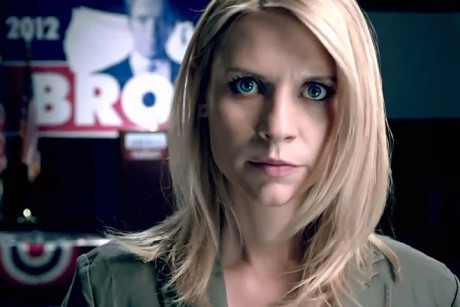
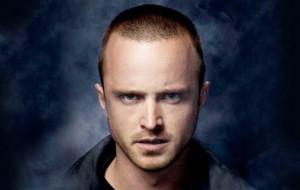
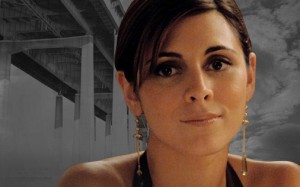
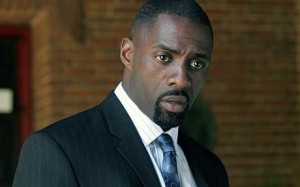
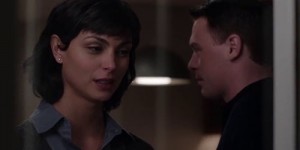


It must be tough for a writer of those shows to keep things hanging until they figure out a killer ending. All that pressure, all those people waiting, all that money. It’s bad enough doing it by yourself.
I love someone is finally canonizing the great TV of the last decade or so. I think Mad Men is the best television show I’ve ever seen, largely because of the writing.
I think a lot of writers COULD do it, if the situation were right. TV shows are on some level supposed to appeal to as wide an audience as possible, so they don’t skew smart. Two of the lead writers of Mad Men, for example, spent years writing for Baywatch. They had it in them, but they weren’t encouraged to go above and beyond. What’s great is that HBO and now AMC are really encouraging shows to be great. That’s always been the missing element.
Also: have you seen THE WIRE?
Baywatch! Who knew?
I loved The Wire, but Mad Men rules for me. The writers of Mad Men have to work in a far less inherently dramatic milieu. The Wire, as wonderful as it is, can always just blow someone away to get your attention.
That said, I’d call Mad Men and The Wire the Beatles and the Stones of Television. All time.
Pingback: TV’s New Golden Age and Why Homeland Won’t Be Remembered — The Good Men Project
Awesome post right here! I think you’re absolutely spot on about every single detail. Writes should take a minute to read your post before they start their day’s work, and give us TV-junkies more, more MORE! :-)
If I might add my two cents: another thing that makes a series stand out, is that when you’re watching, you’re thinking: “I want to BE that guy… But actually I’m glad I’m not…” :-)
Greetings, I believe your site could possibly be having internet
browser compatibility issues. When I look at your website in Safari, it looks fine however when opening in Internet Explorer,
it’s got some overlapping issues. I just wanted to provide you with a
quick heads up! Besides that, great blog!